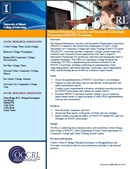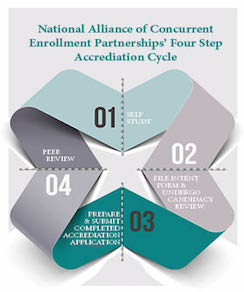Dual Credit Funding Models
Over the past decade, the number of Illinois high school students enrolling in community college courses has expanded rapidly, necessitating research to better understand this phenomenon. State policies governing dual credit are the Dual Credit Quality Act, along with administrative rules of the Illinois Community College Board (ICCB). These state policies allow high schools to collect funds for average daily attendance (ADA) and colleges to obtain funding for full-time enrollment (FTE) for the same dual credit student, but other aspects of funding are not specified. In Illinois state policies do not set tuition rates for dual credit students nor dictate how funding is exchanged among high schools and colleges.
Goals
The purpose of this study is to describe the funding models and resulting cost of dual credit coursework in Illinois for students, institutions and the state. The overarching goal of the study is to document the current funding structure as it is being implemented in institutions across the state and describe how the funding structure impacts the primary stakeholders of students, institutions and the state. The primary research question guiding the Dual Credit Funding Models in Illinois Community Colleges study was: What are the predominant dual credit funding models among Illinois community colleges?
Project Profile
Select Presentations
- Dual credit programs in Illinois: At the crossroads of funding and access, April 24, 2015
- Dual Credit Funding Models in Illinois Community Colleges, October 27, 2014
- Dual Credit in Illinois: Research and an Innovative Application, October 31, 2013
- Dual Credit in Illinois: Ensuring Quality and Examining Impact, Presented at the annual meeting of the National Alliance for Concurrent Enrollment Partnerships, October 20, 2013








